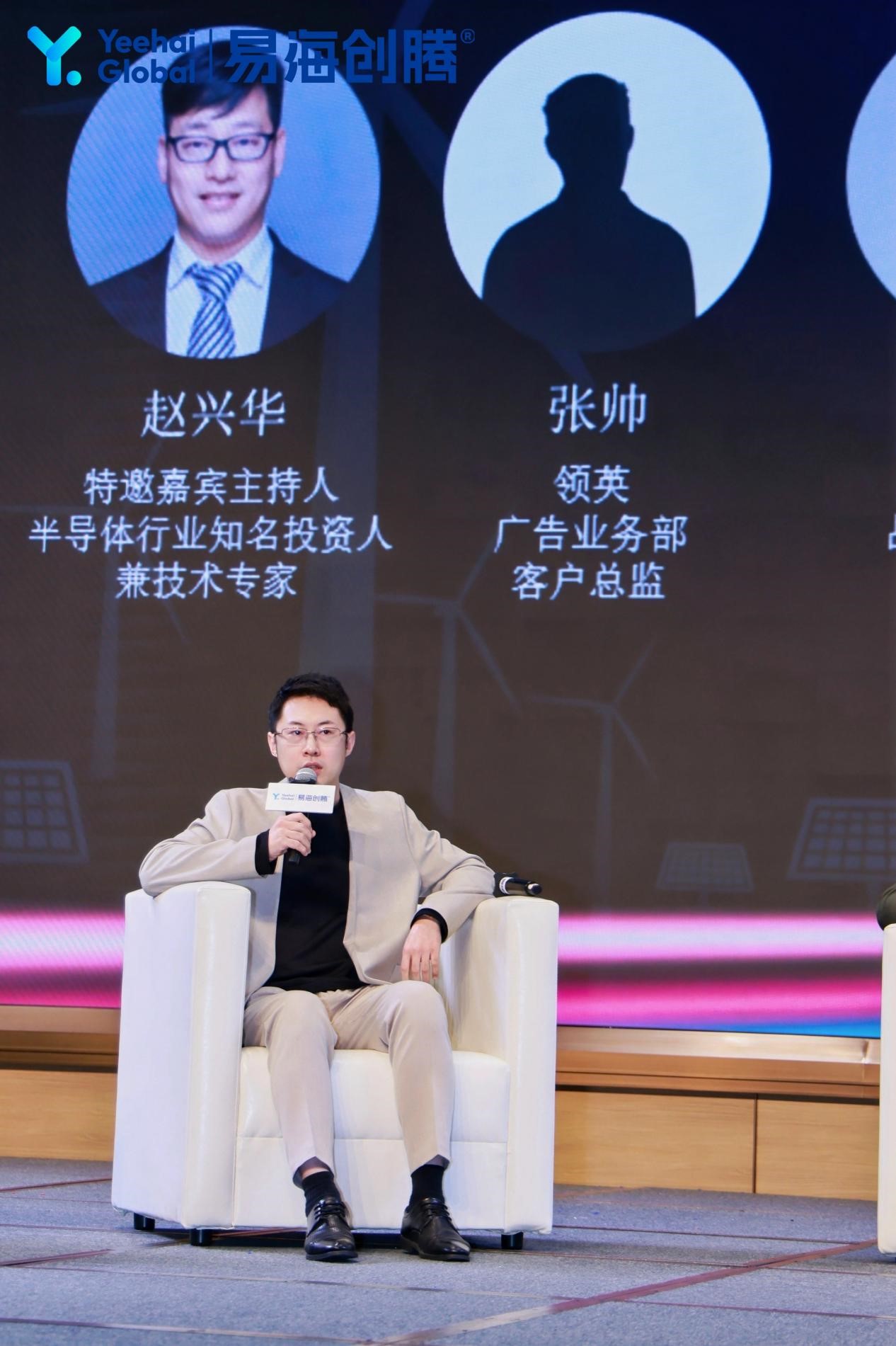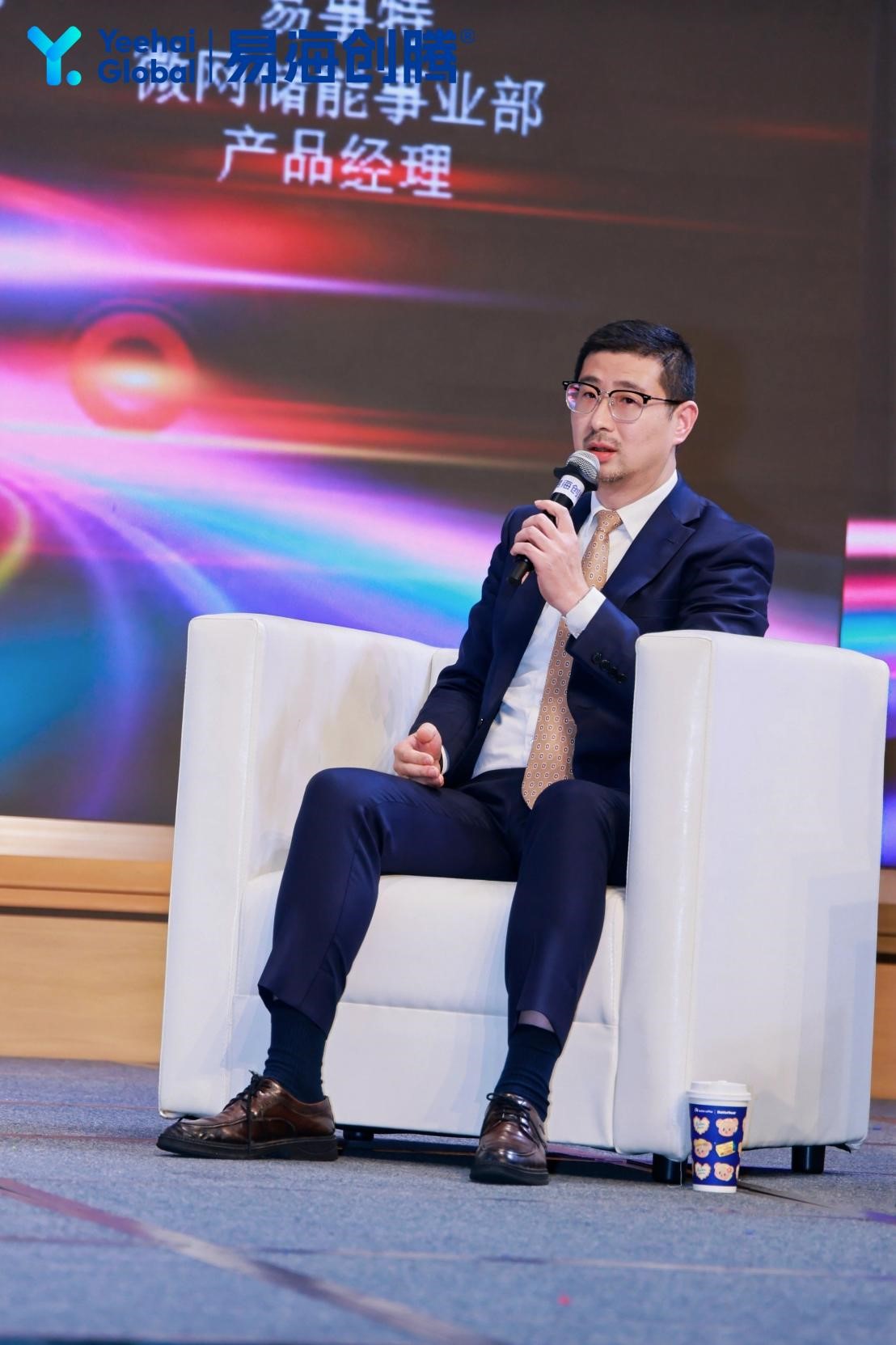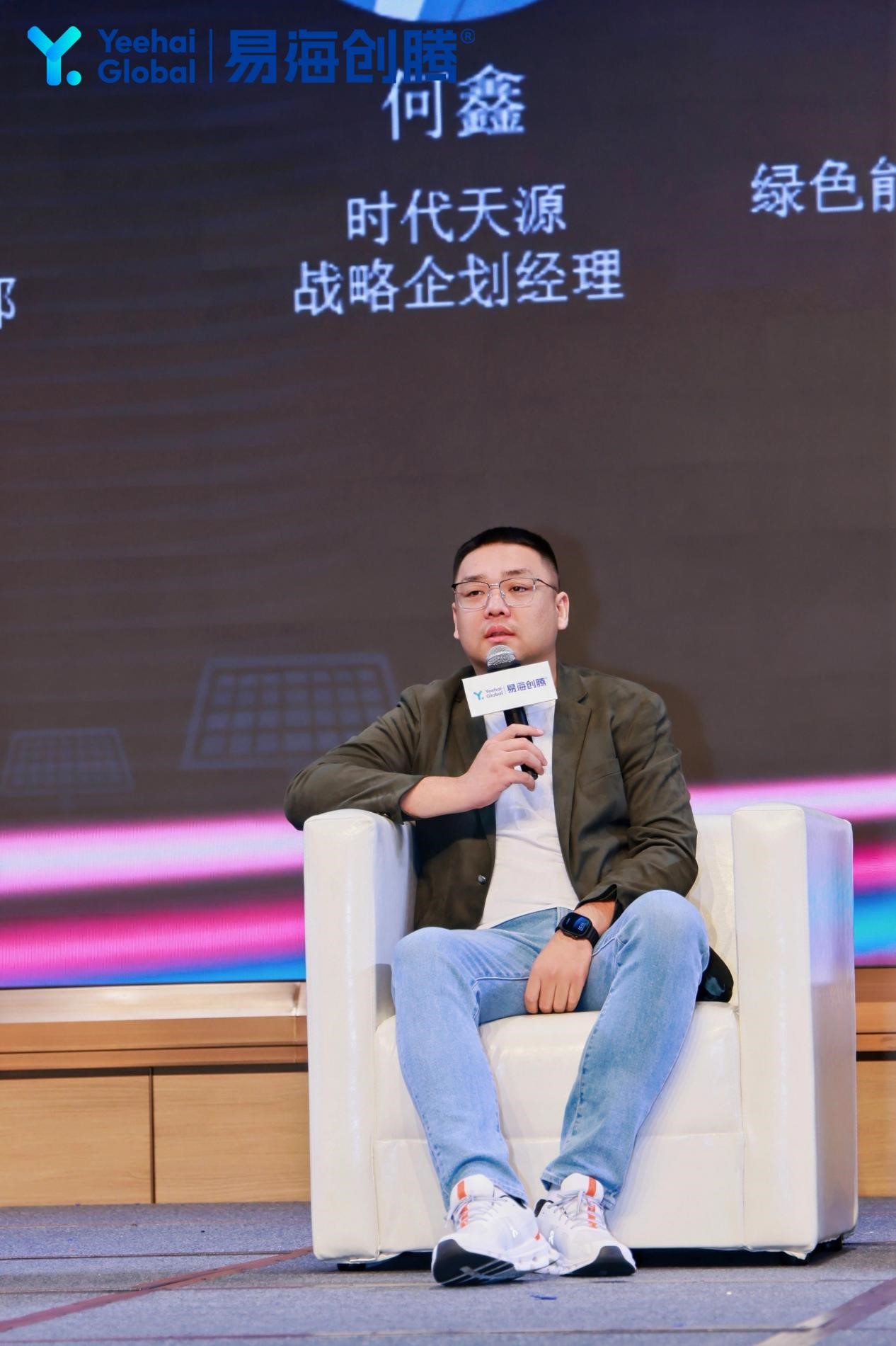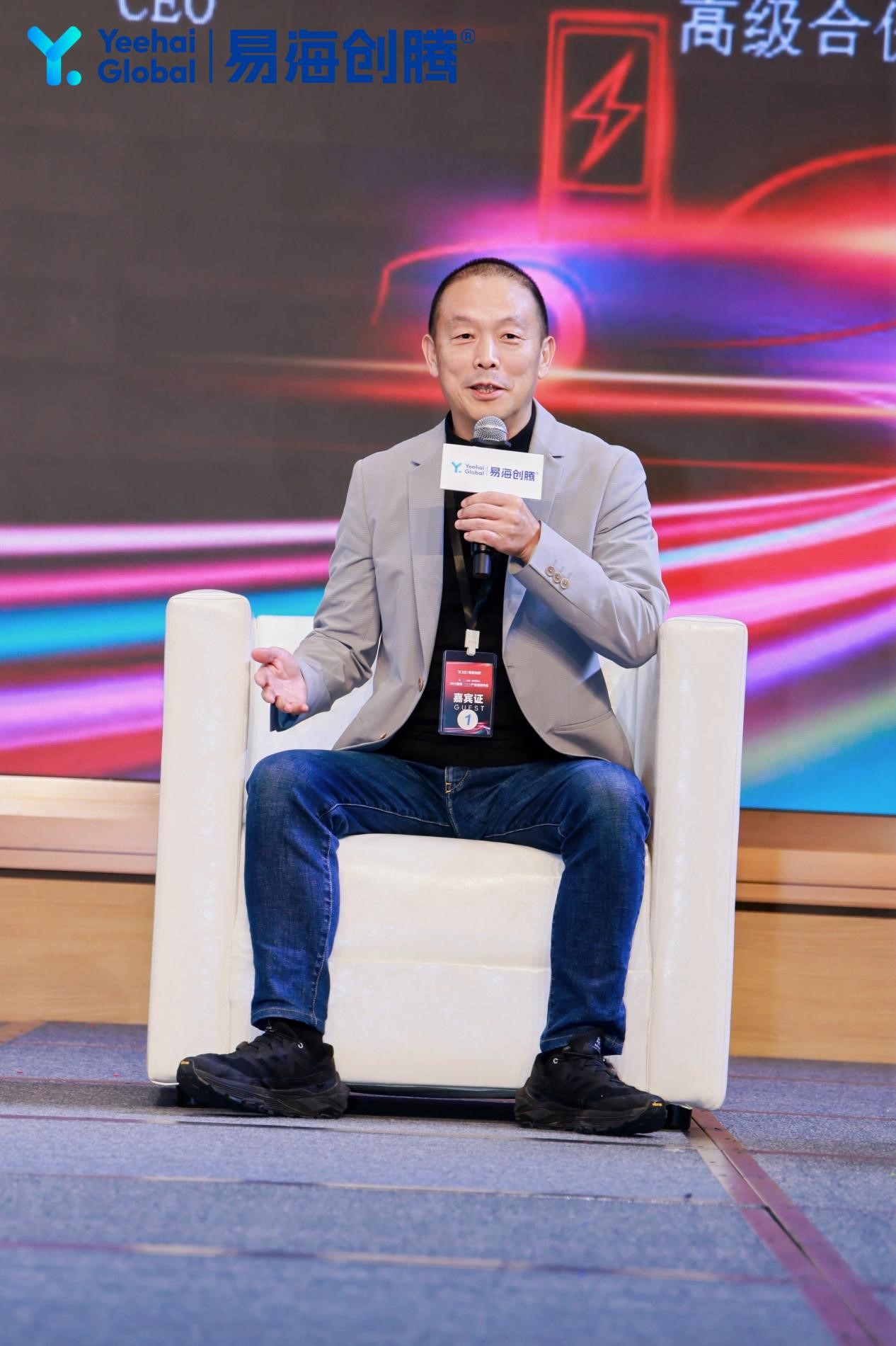A Fierce Industry Debate Over Survival
(February 27, 2025, Shenzhen) — A heated discussion about the future of China’s new energy industry unfolded at the "2025 International New Energy Industry Marketing Summit." On stage, representatives from the Green Energy Industry Promotion Association, LinkedIn, Terapower (a subsidiary of CATL), East Group, ETR Law Firm, and Yeehai Global engaged in a fierce debate over keywords like "Go global or be eliminated," "Compliance risks," and "550,000 miracle devices in Africa." Off stage, nearly a thousand business representatives listened attentively—the outcome of this discussion might determine the fate of many Chinese companies.

Figure: 2025 International New Energy Industry Marketing Summit "Roundtable Forum" (guests from left to right: Zhao Xinghua, Zhang Shuai, He Xin, Zhou Yuan, Wang Zhilong, Shantao, Zhou Shengyong)
Chapter 1: Go Global or Go Under? A "Divided Consensus" Among Industry Leaders
"Domestic competition is suffocating, but overseas markets could be an even bigger trap."
The discussion kicked off with the moderator, Zhao Xinghua—a well-known semiconductor expert and investor—posing the industry’s burning question: "Go global or be eliminated?" The panelists quickly diverged in their opinions.

Figure: Zhao Xinghua, host of the 2025 International New Energy Industry Impact Summit, well-known semiconductor expert & semiconductor investor
The "Go-Global" Argument
Zhang Shuai, Director of LinkedIn Advertising Business, presented a data-driven case: the domestic new energy market is essentially saturated, with limited growth potential. He argued that overseas markets offer necessary expansion opportunities. Through LinkedIn’s precise targeting, he claimed, businesses could generate sales leads at one-tenth the cost of traditional trade shows.

Photo: Zhang Shuai, Account Director of LinkedIn's Advertising Business Department
Zhou Yuan, President of the Green Energy Industry Promotion Association, emphasized the policy barriers in Western markets. With localization requirements of 30–40%, purely export-oriented Chinese companies are struggling to gain entry. "Without going global, you don’t even get to compete," he warned.

Picture: Zhou Yuan, President of the Green Energy Industry Development Promotion Association
The "Stay-Local" Counterargument
Zhou Shengyong, Vice President of East Group’s Microgrid Storage Division, countered that China’s commercial and industrial energy storage market still has hundreds of gigawatts of potential. He warned that blindly expanding overseas could lead to failure on both fronts. Companies should evaluate their capabilities and market demands carefully.

Figure: Zhou Shengyong, deputy general manager of the energy storage division of East Microgrid
Shan Tao, a lawyer from ETR Law Firm, gave an even starker warning: in his legal practice, 30% of Chinese companies expanding abroad lost all their profits due to contract loopholes and compliance issues. "Staying put may mean slow death, but reckless expansion is suicide."

Picture: Lawyer Shantao of ETR Law Firm
Consensus: Globalization Is Not a Yes-or-No Question, But a Strategy
Moderator Zhao Xinghua summed up the discussion with a key takeaway:
For the capable: Global expansion is the best escape from domestic competition.
For the unprepared: The domestic market remains the foundation.
The ultimate strategy: Companies must assess their "product-market fit, compliance readiness, and local operational resources" before making a move.
Chapter 2: 550,000 "Miracle Devices" in Africa vs. Compliance Nightmares in Europe—Two Extremes of Global Expansion
"In Africa, we’re not selling technology—we’re selling survival solutions."
A shocking case study shared by He Xin, Strategic Planning Manager at Terapower, left the audience stunned: a Shenzhen company repurposed discarded lithium batteries and second-hand LCD screens into "off-grid TV units" for African households. Using a weekly rental model, the product—costing only 350 RMB—achieved payback in just 45 days, with over 550,000 units shipped in a single quarter. "It’s not high-tech," He admitted, "but it solves a real problem: ‘TV when there’s power, cooking when there’s none.’"

Pictured: He Xin, strategic planning manager of Terapower
The Compliance Struggles in Europe
While Africa showcases the potential of ingenuity and adaptability, Europe presents a stark contrast. Strict compliance requirements, high certification costs, and intense competition have caused significant setbacks for many Chinese companies attempting to enter the European market.
The Reality Behind Market Polarization
Market Segmentation Strategy
Africa/Southeast Asia: Leverage "ultra-cost efficiency + tailored solutions" to penetrate lower-tier markets.
Europe/USA: Focus on "technology certification + compliance capabilities" to compete in high-end markets.
Risk Mitigation Strategy
Zhou Yuan advised against concentration in a single region. Instead, companies should diversify across multiple locations—for instance, setting up a battery plant in Poland and an assembly line in Romania—to spread risks.
Chapter 3: From Price Wars to Brand Wars—Breaking Free from the Survival Struggle
"Low prices open markets, but only brands retain them."
Wang Zhilong from Yeehai Global and Zhang Shuai from LinkedIn both agreed: branding is essential for long-term success, and digital marketing can be a game-changer. Some key industry insights include:
Chinese new energy companies allocate less than 15% of their overseas customer acquisition costs to branding—far below the 40% spent by Western competitors.
Companies leveraging LinkedIn’s content marketing strategy have achieved a 2.3x increase in customer retention.
Wang also emphasized two key aspects of branding:
High-tech product positioning: Companies must emphasize technological strength.
Cultural storytelling: Establishing a cultural narrative helps foreign customers connect with and trust a brand.

Picture: Wang Zhilong, founder of YeeHai Global/China Exportsemi
Three "Arrows" to Break Free from Price Competition
Product Strategy: From "Parameter Competition" to "Scenario Expertise"
Zhou Shengyong shared East Group’s differentiated approach: in Europe, they promote "solar + storage + EV charging" solutions, while in Africa, they offer rugged, dust-resistant simplified versions.
Localization Strategy: Real Action, Not Just a Slogan
Zhou Yuan repeatedly emphasized that localization is more than just lip service—it requires real, on-the-ground execution, including trust in local talent and supply chain integration.
Compliance Strategy: Send Lawyers Before Salespeople
Shan Tao stressed the need for "compliance-first" thinking: "Going global is like a brawl—you can’t go in alone. Companies need the right legal and service infrastructure, not just technical and R&D prowess, or they’re simply ‘running naked.’"
Conclusion: There’s No One-Size-Fits-All Answer, But There’s No Turning Back
"550,000 miracle devices in Africa prove China’s agility, while a compliance disaster in Europe exposes its vulnerabilities."
The forum did not provide a definitive answer to whether Chinese companies should go global—but it did draw two clear red lines:
Opportunity Red Line: Avoid replicating domestic price-war strategies abroad.
Risk Red Line: Compliance shortcuts make brand building meaningless.
As Shan Tao aptly put it: "Experience swimming in the Yangtze won’t save you from drowning in the Atlantic." Globalization is not just expansion—it’s an entirely new survival game that requires learning from scratch.
Footnote:
The 2025 International New Energy Industry Marketing Summit and the inaugural release of the "2025 China New Energy Industry Chain Core Competitiveness White Paper" were successfully held on Thursday, February 27, 2025, at the Shenzhen Guangming Cloud Valley International Conference Center. Hosted by Yeehai Global—a client-renowned digital marketing agency specializing in overseas markets—and co-organized by its resource platform China Exportsemi, the summit aimed to provide Chinese new energy enterprises with global expansion guidance, foster business collaboration platforms, and facilitate discussions on cutting-edge trends and commercial opportunities in the global new energy industry.
Related:
The 2025 International New Energy Industry Marketing Summit Was Successfully Concluded
The Battle for Charging Station Core Technology: How Chinese Companies Overcame Western Barriers to Lead the Industry
Data-Driven Expansion of New Energy: Dun & Bradstreet Unveils a New Path for Global Business Decision-Making
Europe’s Electric Truck Revolution Spurs 1.2 Billion kWh Energy Storage Demand
CEO of the Global Decarbonization Expo Decodes the New Paradigm of China and EU Green Cooperation
China's New Energy Industry at a Crossroads: Challenges and Pathways to Global Leadership
New Rules for New Energy Expansion: How to Break Out from an Overcrowded Market?






